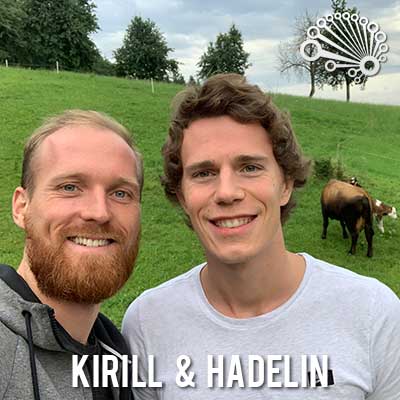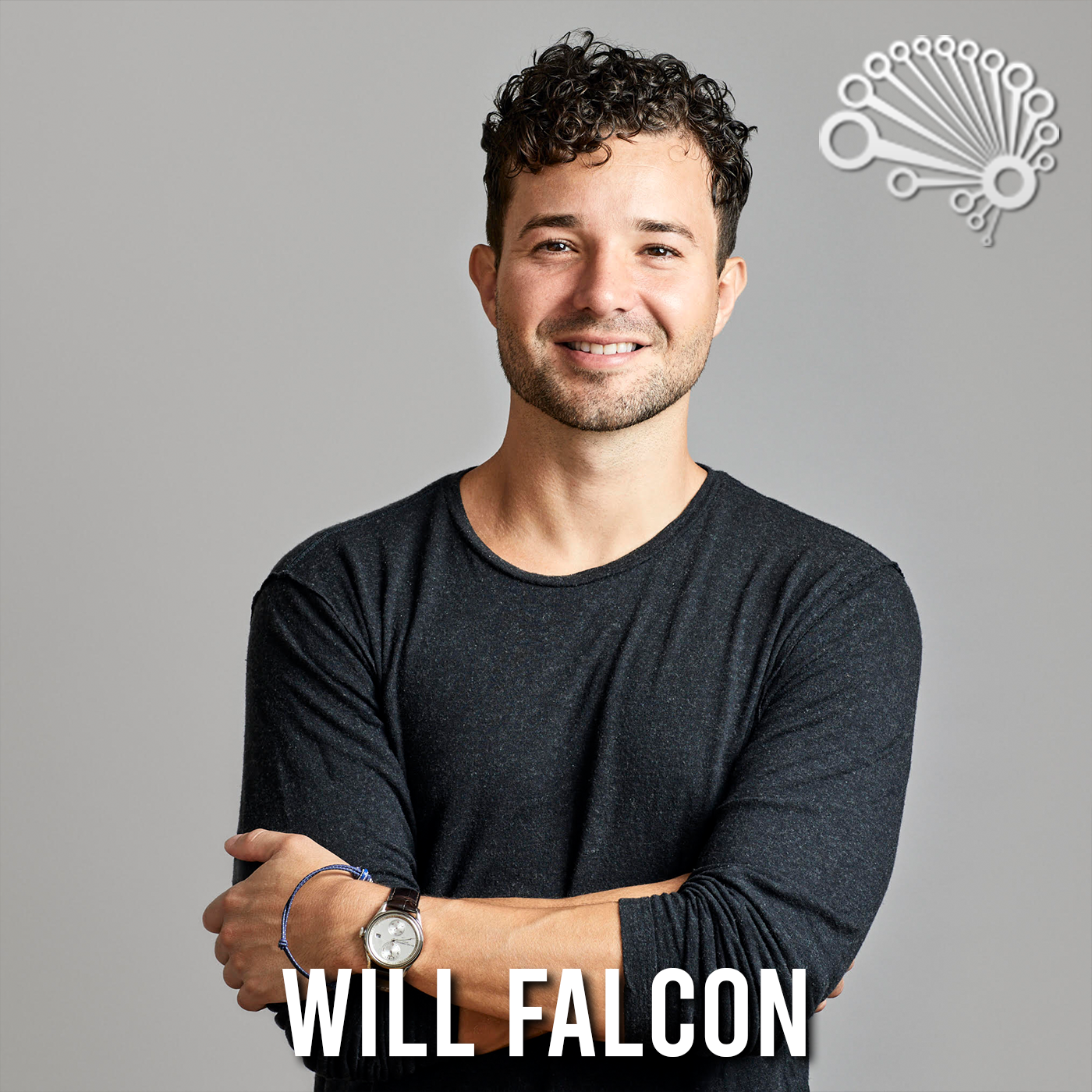Kirill: This is FiveMinuteFriday episode number 282, Learning Something New.
Kirill: Welcome back to the SuperDataScience podcast. We’ve got Hadelin here on the… Is sitting right next to me actually. How are you going Hadelin?
Hadelin: Hi Guys, how are you? I’m doing well. And you?
Kirill: Yeah, yeah, good, thanks. So, today we are continuing our little series of episodes about… Just series of episodes chatting with Kirill and Hadelin I guess.
Hadelin: Yes, chatting about life, important stuff that can have a good impact. Make a change.
Kirill: Yeah. By the way, if you like these episodes, leave us some comments. You can do that either on Soundcloud or iTunes or go to www.superdatascience.com/282 in the case of this episode and leave us comments there. Love to hear from you. If you don’t know who we are, so we teach online, we’ve taught close to a million students in terms of data science, AI, machine learning. And also you do the intro this time.
Hadelin: Yes, that’s right. Actually, last year we founded a new business called Bluelife AI, which is a business that empowers companies to make massive profits by leveraging the power of artificial intelligence at no upfront cost. But we actually identified something new today in our brand and identity. We also realized that our brand is also about helping companies serve their purpose. You know, for example, if we want to do AI for the environment, well we’ll help innovate in that field in that industry. And that’s something powerful that we got out of this a brainstorming session we had this morning because right now we’re actually in Slovenia brainstorming about this, Bluelife, to take it to the next level and grow it massively.
Kirill: Yeah. And help businesses as well. So if you are looking for some AI services and at no upfront cost, meaning that you don’t pay unless you love, totally loved the results and they add massive value to business, then bluelife.ai or www.bluelife.ai is the place to go. Moving on today’s topic, we are talking about learning something new. So a lot of the time people get scared to learn something new. Why is that?
Hadelin: Because they think they won’t be able to learn it. Like for example, I even get scared sometimes. I wanted to learn piano and I said, oh no, I’m too old for this. Piano is a thing that children learn and that’s how they get skillful. And that’s a false belief. And we can talk about false beliefs. That’s super important because it happens to every one of us. We all have these false beliefs, that we cannot, for example, do something which is totally wrong, which is totally false. And the way to think about this is to ask ourselves am I sure that I cannot learn piano, for example? Is there a way that I can learn piano? And so yeah, I think that’s where it comes from. People are scared to learn something. Something because of false beliefs.
Kirill: Yeah. Yeah. There is whole a system that Tony Robbins teaches how to eliminate a false belief because they are very toxic.
Hadelin: Yes.
Kirill: Stuck in your mind.
Hadelin: They are toxic and they’re everywhere.
Kirill: That’s true. And so learning something new, on the flip side, what we found is that well it’s a, it’s quite well known and when you learn something for the first time, you have massive advantage. You have over people who’ve already been learning in the sense that you have so much more fun. You make so much of a progress. Example: for Roger Federer, the famous tennis player, to make, I don’t know, five units of progress in his game of tennis, he needs to, like hypothetical units or however you measure that or just get a little bit better at his game in tennis, he would have to practice for intensely for three months in a row to get that extra advantage on top of what he already has. For me to go and learn tennis, I know how to hold the racket and I played a little bit of tennis as a kid but completely forgot everything.
Kirill: For me to go and learn tennis now in the space of not three months, not even three weeks, in the space of three days, I would gain a huge, a huge momentum for it. I would make huge strides forward. If Roger Federer would make five hypothetical units of progress in three months. I would make like 500 units of progress in three days. Of course, we have to take into account that Roger Federer probably has 5 million of units of progress behind his back already. But nevertheless, the speed at which you gain knowledge and experiences and develop the skill is ridiculously, is greater. And therefore you learn more, you learn faster and you have more fun along the way.
Hadelin: Yes, that’s a great, a great analogy. And well, I could realize that, in the first year of learning something, you learn so much and then in the second year you learn less. In third year you learn much less. That’s exactly what you’re explaining about the units. So I can, I could give many other examples of this. I learned Chinese for example, for one year. And this is great. I mean, I didn’t continue, but this is great because I have the basics of Chinese and I can talk basic Chinese in a conversation, which is by the way, good for business. And I have many other examples like for example, the courses. I improved my level so much and so quickly at the beginning. And then the more I did courses, well the less I improved like in terms of amount of progress.
Hadelin: So it’s like this logarithmic curve. It’s strong at the beginning and then, over time, over the practice, over the experience, you get to learn it less and less. But the point is that you learn so much and you learn the most part of it in the first year. And that’s why I think we should never stop learning, we should learn as many things as possible because then we end up with all these skills and all these great things about, that we can do in life. And that’s just amazing.
Kirill: So what are we learning now Hadelin?
Hadelin: Right now we are learning business actually. We are learning how to sell, which is something, actually…
Kirill: We are learning how to sell.
Hadelin: We actually had no experience with, we’ve been some business operators like making courses or running businesses, but we actually never learned how to sell.
Hadelin: And you heard more and more on TV or social media or advertising that selling is absolutely fundamental when you have a business and even in life. So you know, it’s the power of influence, the power of selling. They are core skills to have in a business. So that’s why we want to learn right now. And, of course, it’s not about selling with no purpose. It’s about selling to serve a purpose. So we also integrate that in our selling learning. And, this is amazing because we actually started a selling course.
Kirill: It’s called Selling Made Easy.
Hadelin: Selling Made Easy. We actually started three days ago and we already learned so much because of the reason we mentioned like in the first step, in the first days of learning something, that’s where you learn the most. And so right now I have all these new concepts in my head that I want to apply, that I want to experience. And this makes so much sense. It’s like I have an infinite knowledge compared to three days ago.
Kirill: Yeah. And totally enjoying it, it’s so much fun. Like we’re discovering something new. Let me see what this course is. Selling Made Easy: Seven steps to selling anything by Benjamin Harvey. Really cool course. And what we also discovered, as I said before, for instance, I had kind of this hesitation about selling. I thought it was like not a noble art. You know, you’re trying to get people to buy a product, but ultimately, as Hadelin said, in order to get your business out there or help other businesses, other companies, you need to be able to sell. And so is being actually very interesting and I’ve changed my opinion about that, that it’s just a necessary step.
Hadelin: Absolutely. Imagine you have a product that serves, that makes the world a better place, very simply. Or that serves other people purpose, which are great purpose, like purpose about the environment, health or whatever industry. Well, if you manage to sell it well, you will have so much great impact on this world and positive impact. So, as long as you are selling something good that helps people that makes this world better, you have to know how to sell. It’s fundamental.
Kirill: Yeah. And beyond that, of course there’s lots of different skills that people can be learning. So I guess our example is that you never know everything. And we always keep learning and we always try to find areas where we can improve and learn those, whether it’s going to attend Tony Robins event and learning about business, whether it’s learning about selling, whether it’s learning a new AI algorithm or a new framework that just recently came out. But the point is if you’re hesitating about learning something new, jump into it, and specifically new, we all sometimes learn things that we already know and improve them. That’s awesome. That’s important to improve your strengths and things that you are an expert at. But also don’t be afraid to pick up something new and learn it even if it is just for the sake of learning. Like Hadelin said, he learned Chinese for a year, then he left it. But at the same time, you know, you’ve got the core, right? And you had a lot of fun along the way, I’m sure, and enjoyed it and opened up your horizons.
Hadelin: Absolutely. And to finish, I’d like to add something important. It’s about ignorance or being savvy. Well, at some point you will learn so much that you will have the feeling that you know everything. Well, never take things for granted. Actually, the savvy people are the ones who know they are ignorant. Have you ever heard the saying?
Kirill: Yeah. Knowing what you don’t know.
Hadelin: Exactly. Yeah. So, I think it’s important to keep that in mind as well.
Kirill: Fantastic. Fantastic advice. On that note, thank you everybody for listening in and joining us today, and we’ll see you next week. Until then, happy analyzing.
Hadelin: Happy analyzing guys.


